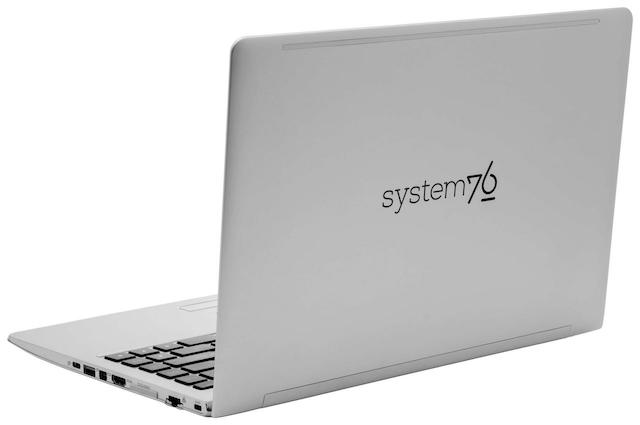
System76 all-new 'Galago Pro' Ubuntu Linux laptop now available for pre-order
If you are a Linux desktop user, you know that buying a laptop can be a pain. You undoubtedly have purchased a Windows machine, formatted the drive, and then installed your favorite distro. This sometimes works well, although you then have that Windows logo on your keyboard. Look, I'm not an anti-Microsoft Linux user, but having the Windows icon on your keyboard takes away from the overall experience.
Luckily, there are companies like System76 that sell computers pre-loaded with Linux-based operating systems (with no Windows key on the keyboard!). Its machines come with Ubuntu, but they can run any Linux distro, such as Fedora, like a champ. The company's newest offering, the all-new 'Galago Pro' laptop, looks drop-dead gorgeous. It delivers a thin and light notebook experience -- like the MacBook Pro -- but without sacrificing specifications or ports. It even has a HiDPI screen, backlit keyboard, and optional NVMe storage. Best of all? Pricing starts at $899!
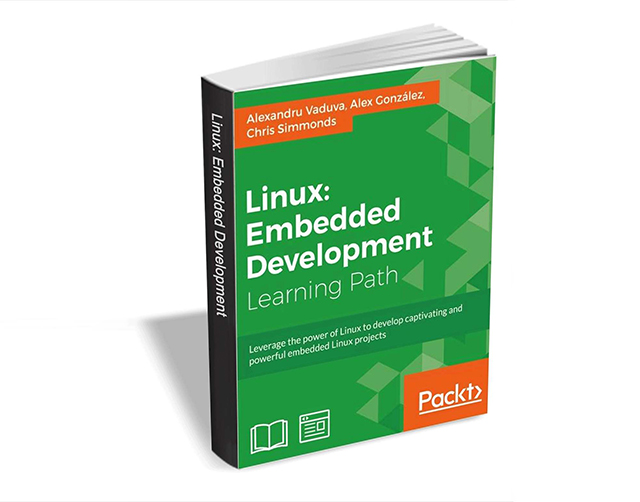
Get 'Linux: Embedded Development' ebook ($63 Value) FREE for a limited time
An embedded system is a device with a computer inside that doesn't look like a computer. Washing machines, televisions, printers, cars, aircraft, and robots are all controlled by a computer of some sort, and in some cases, more than one. As these devices become more complex, and as our expectations of the things that we can do with them expand, the need for a powerful operating system to control them grows.
The Linux: Embedded Development ebook from Packt Publishing will tell you everything you need to know to leverage the power of Linux to develop captivating and powerful embedded Linux projects. It usually retails for $63 but for a limited time you can get it entirely free.

OpenELEC 8.0 Linux distribution now available for PC, Raspberry Pi, WeTek Hub, and more
When you want to play media in your living room, there are countless options nowadays. You can buy an Apple TV, Xbox One, Roku, or something else. Of course, for some people, a self-built home theater computer is a more rewarding experience. Thanks to Linux and solutions like Kodi, it can be easy to build a very capable media center machine.
Today, popular Linux distro OpenELEC reaches version 8.0 stable. This operating system leverages Kodi to provide a well-rounded media center experience. Not only are there images for PC, but for Raspberry Pi and WeTek boxes too.

Ubuntu founder Mark Shuttleworth insults free software community, compares Mir to gun control debate
When it comes to Linux on the desktop, I am primarily a Fedora user. Sure, I like trying out other distributions for fun, but I always return to the wonderful Fedora. Heck, I even mess around with Ubuntu on occasion, although I am not a huge fan of Unity -- I love GNOME. With that said, when Mark Shuttleworth, Ubuntu founder, recently announced that he was killing the Unity desktop environment and embracing GNOME, I was quite happy. It signaled less fragmentation and division in the Linux community.
My happiness was short lived, however, as Mark Shuttleworth has been insulting the free software community on social media. Over on Google+, he even goes so far as to compare the hate for the MIR display server to the debates on gun control and climate change. Really, Mr. Shuttleworth? In his vulgarity-laced rant, he even calls members of the free software community "deeply anti-social types." Gee, thanks a lot.

Canonical killing Unity for Ubuntu Linux, will switch to the superior GNOME
Unity is a fine desktop environment, but many users of Ubuntu hate it. In fact, due to how much negativity there is towards the DE, Linux Mint has experienced popularity thanks to Cinnamon and Mate. Quite frankly, maintaining Unity has been somewhat foolish for Canonical -- a waste of resources and money when there are plenty of wonderful existing environments.
Today, the company admits that it is throwing in the towel on Unity, as well as its vision for convergence with devices like phones and tablets. Starting with Ubuntu 18.04, the wonderful GNOME will once again become the default desktop environment!
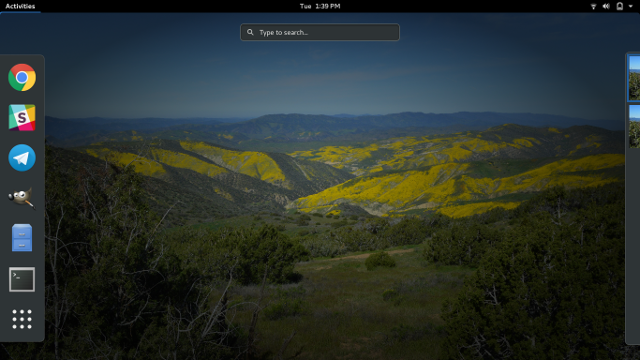
Fedora 26 Alpha Linux distribution with GNOME 3.24 now available for download
Fedora is my absolute favorite Linux distribution. While it may not be the most popular such operating system, many in-the-know users ultimately choose it. Heck, Linus Torvalds, the father of Linux, famously uses the distro. It's not hard to see why many advanced users select it -- it is rock solid while being fairly bleeding edge. Also, for those that are fans of open source and FOSS, there are no proprietary packages, codecs, or fonts included "out of the box." It is just a refreshingly smooth and straightforward experience.
Today, Fedora 26 gets an Alpha release. While you might expect a pre-Beta release to be full of bugs and issues, that is absolutely not the case. I have been using the operating system all day today, and despite the "Alpha" tag, it is totally rock solid. I have yet to encounter a bug or issue. Of course, my experience won't necessarily be the same as yours. In other words, tread cautiously, and avoid installing this on a production machine.
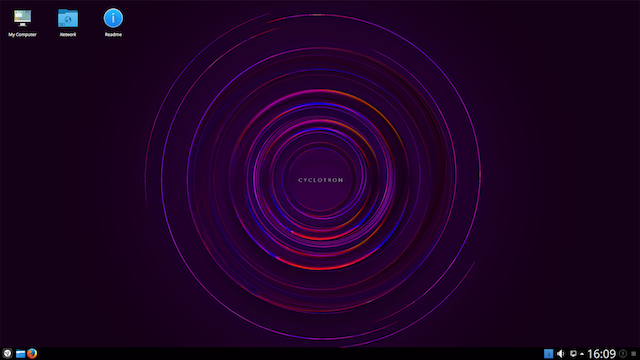
Netrunner Desktop 17.03 'Cyclotron' Debian-based KDE Linux distro now available
When you choose a Linux-based operating system, you also choose a desktop environment. For many users, the DE sort of is the operating system. In other words, for some, they will really only interact with the user interface -- especially if they avoid the command line. A good operating system will get out of the user's way, allowing them to focus on the apps and tools they need.
If you are moving from Windows to Linux, KDE can be a great desktop environment. It is very reminiscent of the traditional Windows 95 to Windows 7 experience. Unfortunately, KDE can be a bit tedious to set up. Sure, it works fine "out of the box," but customizing it can be daunting. Luckily, there is a Debian-based operating system that is configured beautifully -- especially for those leaving Microsoft's OS. Called "Netrunner Desktop," it comes pre-loaded with many useful programs, making it an absolute joy to use. Today, it reaches version 17.03, code-named "Cyclotron."

Ubuntu Linux 17.04 'Zesty Zapus' Final Beta now available for download in multiple DE flavors
When someone is interested in trying a Linux-based desktop operating system for the first time, they often choose Ubuntu. This is a smart choice, as it is easy to use, well supported, and quite beautiful. Even if you don't like the Unity desktop environment, there are several other DEs, or flavors, from which to choose -- GNOME, KDE, and Xfce to name a few.
Today, the Final Beta of Ubuntu 17.04 'Zesty Zapus' becomes available for download. While it is never a good idea to run pre-release software on production machines, Canonical is claiming that it should be largely bug free at this point. In other words, if you understand the risks, it should be fairly safe. Home users aside, this is a good opportunity for administrators to conduct testing prior to the official release next month.

GNOME 3.24 Linux desktop environment is here
My absolute favorite desktop environment for Linux is GNOME. Quite frankly, if the DE went away tomorrow, I might have to rethink my use of Linux entirely. Yeah, I am that passionate about it. Environment aside, the GNOME also includes a collection of applications, creating a coherent user experience.
Today, GNOME reaches version 3.24, code-named "Portland." While it looks great, it is hardly a monumental change. Moving from 3.22, we see some new features and applications, but on the UI front, there are improved icons too. In fact, they have doubled from 256×256px to 512×512px! Not only can these icons scale larger, but they are more vibrant and intricate too. Overall, there are many new aspects of GNOME to excite fans.

Firefox for Linux is now Netflix compatible
Relying on a Linux distribution as your full time operating system can be great -- until it isn't. While there are many quality packages and applications that are compatible with the open source kernel, every once in awhile you will run into something that simply isn't available. When this happens, it can be very frustrating.
For a while, Netflix was not available for traditional Linux-based operating systems, meaning users were unable to enjoy the popular streaming service without booting into Windows. This was due to the company's reliance on Microsoft Silverlight. Since then, Netflix adopted HTML5, and it made Google Chrome and Chromium for Linux capable of playing the videos. Unfortunately, Firefox -- the open source browser choice for many Linux users -- was not compatible. Today this changes, however, as Mozilla's offering is now compatible with Netflix!

Seven year-old Linux vulnerability now patched
An old vulnerability was just discovered in the Linux kernel, potentially allowing hackers to gain privilege escalation, or cause a denial of service. The vulnerability was quickly fixed and there have been no signs of it in the wild, although that does not necessarily mean it went unnoticed.
According to Positive Technologies expert Alexander Popov, the CVE-2017-2636 vulnerability is seven years old and has affected the majority of popular Linux distributions, including RHEL 6/7, Fedora, SuSE, Debian, and Ubuntu.

Kdenlive is a powerful video editor for… Windows?
Kdenlive has been a popular non-linear video editor in the Linux world for a very long time, but the developers have also recently released a first Windows port.
The build doesn't skimp on functions: there's a full multi-track timeline and an array of effects and transitions to explore.

Canonical announces Ubuntu Linux 12.04 ESM (Extended Security Maintenance)
On April 25th, Ubuntu Linux 12.04 LTS will no longer be supported by Canonical. Why? That is the 5 year anniversary of the release, which is the amount of support time given to an LTS (Long Term Support) version of the Linux distribution.
For many home users, this really doesn't matter, as they have probably already upgraded to a newer version. Unfortunately, some businesses do not upgrade as regularly. In fact, some organizations may not be ready to move on from Ubuntu 12.04. Tough luck? Not at all. Today, Canonical introduces Ubuntu Linux 12.04 ESM. This "Extended Security Maintenance" release is not free, however -- organizations must pay for the extended support.
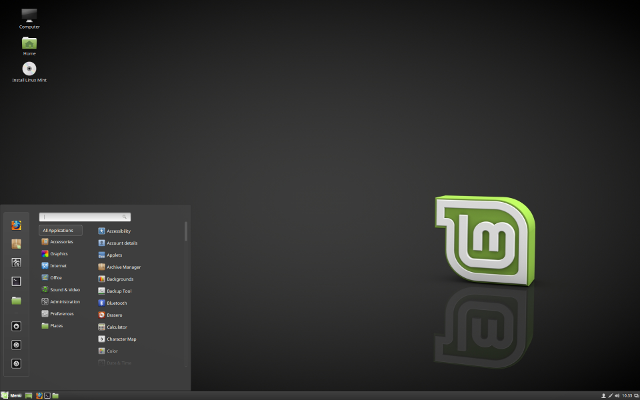
Refreshed stable Linux Mint Debian Edition (LMDE) 2 'Betsy' ISO images now available
Linux Mint is one of the most popular Linux-based desktop operating systems. With that said, did you know there are two versions of the OS? No, I am not talking about the multiple desktop environments, such as Cinnamon, MATE, and KDE. There are actually two entirely different operating systems that share the Mint name. The normal version of Linux Mint is based on Ubuntu, while a lesser known version, LMDE, is based on Debian. Is it confusing? Absolutely. A waste of resources? Probably. But hey, that's the state of Linux on the desktop nowadays.
Linux Mint Debian Edition 2 'Betsy' launched way back in 2015, and hasn't needed a major base upgrade. Instead, LMDE has received a steady stream of updates over the last two years. The problem? The ISO images were very outdated, meaning a fresh install required a lot of updates. As a way to improve the experience, the Linux Mint team has decided to refresh the installation media. Today, refreshed stable Linux Mint Debian Edition (LMDE) 2 'Betsy' ISO images become available, with the choice of either Cinnamon or MATE.
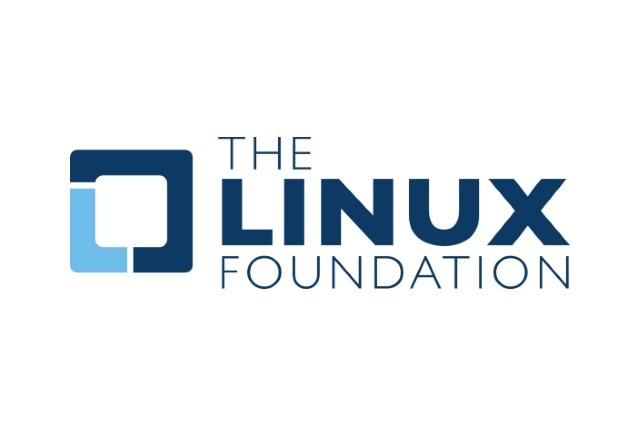
Vault 7 fallout: Linux Foundation says it's "not surprising" Linux is targeted
In the wake of WikiLeaks' Vault 7 CIA leaks, Apple has been quick to point out that vulnerabilities mentioned in the documents have already been addressed. Microsoft and Samsung have said they are "looking into" things, and now the Linux Foundation has spoken out.
Nicko van Someren, Chief Technology Officer at The Linux Foundation says that while it is "not surprising" that Linux would find itself a target, the open source project has a very fast release cycle, meaning that kernel updates are released every few days to address issues that are found.
